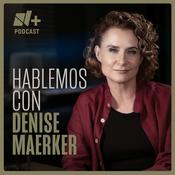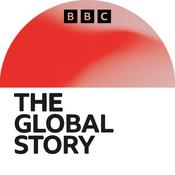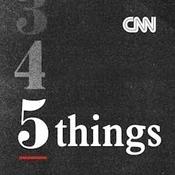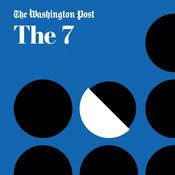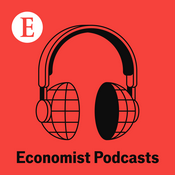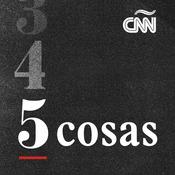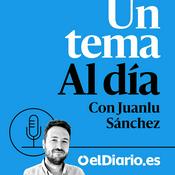47 episodios

Live from Doha with Hillary Clinton
11/12/2025 | 31 min
On a special bonus episode of Counterpoint, FP editor in chief Ravi Agrawal sits down with former U.S. secretary of state Hilary Clinton on the main stage of this year’s Doha Forum to discuss the Trump administration’s newly released National Security Strategy, what Congress needs to do better, the ongoing conflicts in Gaza and Ukraine, and more. Counterpoint is a production of Foreign Policy, in partnership with the Doha Forum. Learn more about your ad choices. Visit megaphone.fm/adchoices

Live from UNGA80 with Kaja Kallas
24/9/2025 | 36 min
On a special bonus episode of Counterpoint, FP editor in chief Ravi Agrawal sits down with Kaja Kallas, the European Union’s top diplomat, on the sidelines of the United Nations’ annual meetings to discuss relations with Washington, Russia’s war in Ukraine, recognizing Palestine, and dealing with China. Counterpoint is a production of Foreign Policy, in partnership with the Doha Forum. Learn more about your ad choices. Visit megaphone.fm/adchoices

Did the Dayton Accords Set Bosnia Up for Failure?
21/5/2025 | 37 min
The Bosnian War in the early 1990s was at the time the bloodiest conflict on European soil since World War II. Some 100,000 people were killed and more than 2 million displaced amid widespread ethnic cleansing and massacres. In 1995, the warring parties struck a power-sharing deal in negotiations just outside Dayton, Ohio, in what came to be known as the Dayton Accords. But the deal didn’t really resolve the underlying problems. Bosnia continues to be plagued by ethnic division, and the country’s political structure is widely seen as ineffective and unstable. Welcome to Counterpoint. On each episode, we look at one pressing question facing world leaders—from two opposing points of view. In our season finale, we’re tackling the question: Did the Dayton Accords set Bosnia up for failure? Arguing that the agreement put Bosnia on a path to perpetual crisis is Jasmin Mujanović, a senior nonresident fellow at New Lines Institute. He is the author of two books, Hunger and Fury: The Crisis of Democracy in the Balkans and The Bosniaks: Nationhood After Genocide. And making the case that the Dayton Accords were essential to bringing peace and maintaining stability is Chris Hill. A career diplomat, Hill was part of the U.S. delegation that brokered the agreement. Most recently, he served as the U.S. ambassador to Serbia under President Joe Biden. Counterpoint is a production of Foreign Policy, in partnership with the Doha Forum. The show is hosted by Sasha Polakow-Suransky. Learn more about your ad choices. Visit megaphone.fm/adchoices

Should the U.S. Completely Decouple From China?
14/5/2025 | 37 min
The United States and China took a step back this week from their trade war, announcing that tariffs imposed just a few weeks ago would be slashed significantly—at least for now. But even as the tension seems to be ebbing, some people in the United States are questioning whether it’s beneficial for the two economies to be intertwined at all. Welcome to Counterpoint. On each episode, we look at one pressing question facing world leaders—from two opposing points of view. Today, we’re tackling the question: Should the United States completely decouple from China? With us to make the case for a tough stance against China is Derek Scissors, a senior fellow at the American Enterprise Institute and the chief economist of the China Beige Book. He is also the author of the China Global investment Tracker. Arguing that broad decoupling won’t work to counter China is Lizzi C. Lee. She’s a fellow on Chinese economy at the Asia Society Policy Institute’s Center for China Analysis. Counterpoint is a production of Foreign Policy, in partnership with the Doha Forum. The show is hosted by Sasha Polakow-Suransky. Learn more about your ad choices. Visit megaphone.fm/adchoices

Is Western Aid Helping or Harming Africa?
07/5/2025 | 36 min
The Trump administration has moved quickly to dismantle the U.S. Agency for International Development (USAID), which oversees U.S. aid around the world, with major repercussions for food supplies, child poverty, pandemic prevention, and much more. The decision has hit Africa particularly hard. African countries were getting about about 30 percent of U.S. foreign aid annually. While many people in Africa are deeply worried about the cuts, some are wondering if the end of USAID might present an opportunity for the continent. Welcome to Counterpoint. Each week, we look at one pressing question facing world leaders—from two opposing points of view. On this episode, we’re tackling the question: Is Western aid helping or harming Africa? With us to argue for the importance of continuing Western aid to Africa is Ndidi Nwuneli, the president and CEO of the ONE Campaign, a global advocacy organization focused on ensuring economic opportunity and healthier lives in Africa. And making the case that aid has caused more problems than it has solved is Ken Opalo, an associate professor at Georgetown University’s School of Foreign Service specializing in African politics and development. Counterpoint is a production of Foreign Policy, in partnership with the Doha Forum. The show is hosted by Sasha Polakow-Suransky. Learn more about your ad choices. Visit megaphone.fm/adchoices
Más podcasts de Noticias
Podcasts a la moda de Noticias
Acerca de Counterpoint
Escucha Counterpoint, Política Déjà Vu y muchos más podcasts de todo el mundo con la aplicación de radio.net
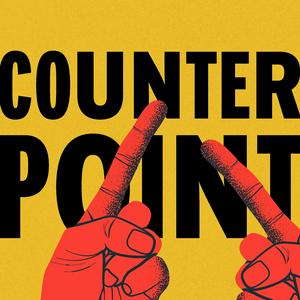
Descarga la app gratuita: radio.net
- Añadir radios y podcasts a favoritos
- Transmisión por Wi-Fi y Bluetooth
- Carplay & Android Auto compatible
- Muchas otras funciones de la app
Descarga la app gratuita: radio.net
- Añadir radios y podcasts a favoritos
- Transmisión por Wi-Fi y Bluetooth
- Carplay & Android Auto compatible
- Muchas otras funciones de la app


Counterpoint
Descarga la app,
Escucha.






